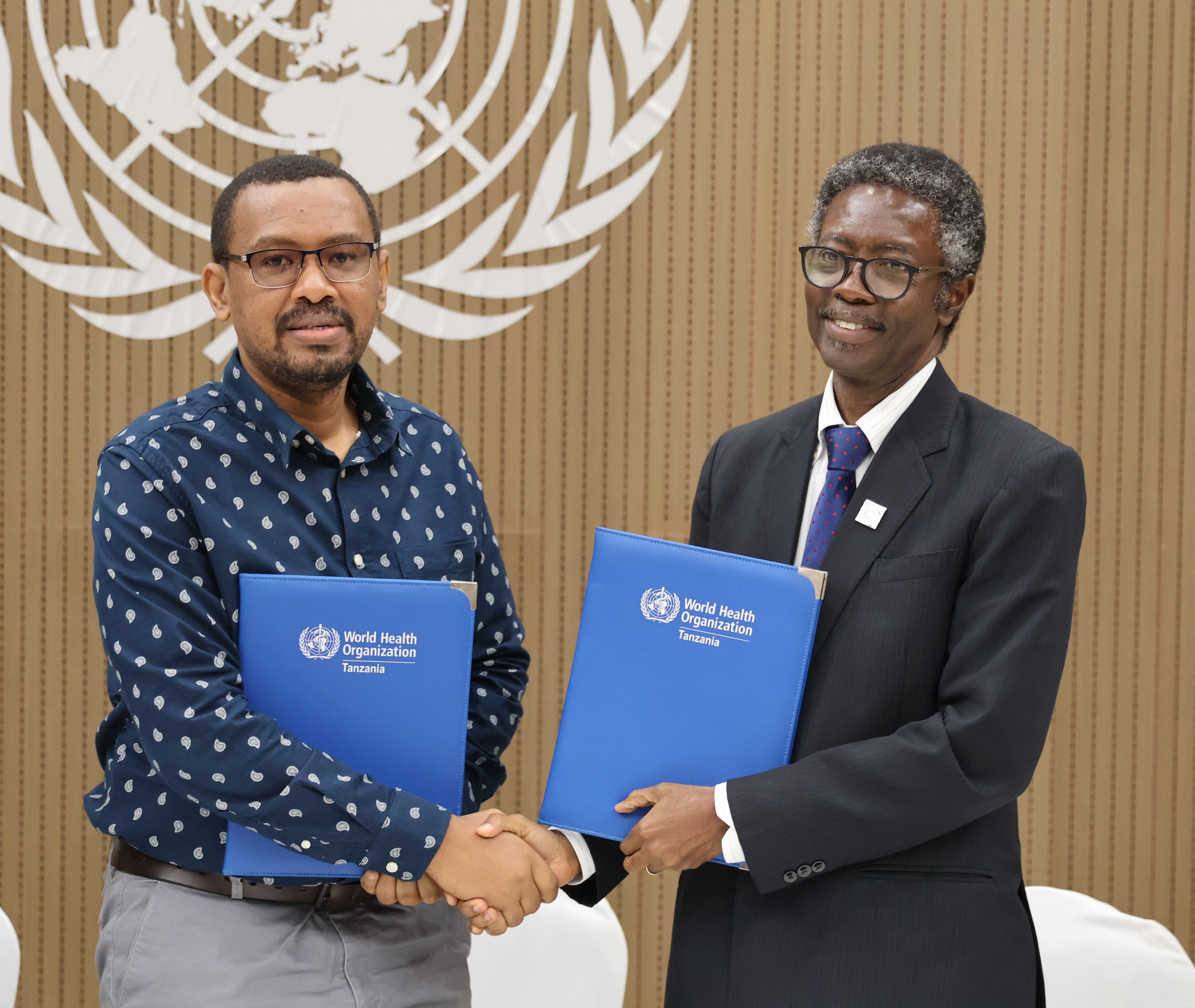
COLLABORATION: Ifakara wins bid to partner with WHO

On May 8 2024, the Ifakara Health Institute along with 10 other development organizations signed collaborative Memorandum of Understandings (MOUs) with the World Health Organization (WHO) for the purpose of working towards achieving greater impact within the health sector in tackling public health challenges in Tanzania.
The signing ceremony, hosted at the United Nations (UN) House in Dar es Salaam was attended by Dr. Sally Mtenga, representing the Health Systems, Impact Evaluation, and Policy department at Ifakara. It is through the collaborative efforts of this department that this achievement has been made possible.
For Ifakara, Dr. Ally Olotu, the Director of Science and Acting Chief Executive Director, was present and played the important role of sealing the partnership on behalf of the institute.
Background
The WHO country office initiated a call for expressions of interest in December 2022, inviting various Non-State Actors (NSAs) to vie for partnership roles in implementing WHO’s country collaboration strategy for Tanzania.
Following rigorous administrative checks and technical evaluations across WHO’s local, regional, and global offices, Ifakara emerged triumphant among the 46 contenders, securing one of the 11 collaborative MOUs.
Who are the non-state actors
Non-state actors (NSAs) are influential organizations not tied to any one country. Joining Ifakara in various focus areas are: Amref Health Africa, Catholic Relief Services, Doctors with Africa, Centre of Excellence in Health Monitoring and Evaluation, Muhimbili University of Health and Allied Sciences, Mzumbe University, Raising up Foundation, SIKIKA, the International Rescue Committee, and the Tanzania Health Summit.
Ifakara’s commitment
Through this MOU the institute commits to supporting a range of critical areas aimed at advancing public health. These include strengthening health systems to ensure universal access to quality RMNCAH and other essential health services, protecting communities against public health emergencies, reducing/controlling exposure to health risks, and enhancing efficiencies in the health sector through improved governance, leadership, and accountability.
Dr. Mtenga, the Head of Health Systems, Interventions, Impact Evaluation, and Policy Department at Ifakara, emphasized that this MOU “strategically positions Ifakara to contribute to the well-being of the Tanzanians through research and innovations” and solidifies its reputation as a globally “trusted” institute.
What do the MOUs mean for Tanzania
The WHO Country Communications Officer, Priscilla Mawuena Adjeidu emphasized that these MOUs signify the beginning of collaboration and partnership, ushering in a “new chapter” focused on enhancing the health of every citizen in Tanzania and accelerating progress towards universal health coverage.
In a keynote address, WHO Country Representative Dr. Charles Sagoe-Moses echoed this sentiment, characterizing the ceremony as “s new chapter for improving the health of every citizen of Tanzania.”
He touched on the spirit of "strategic partnership" as the theme of this collaboration, which aims to cultivate stronger alliances between WHO and the non-state actors, leveraging networks and resources to address health challenges with greater impact for the health and well-being of the people of Tanzania.
